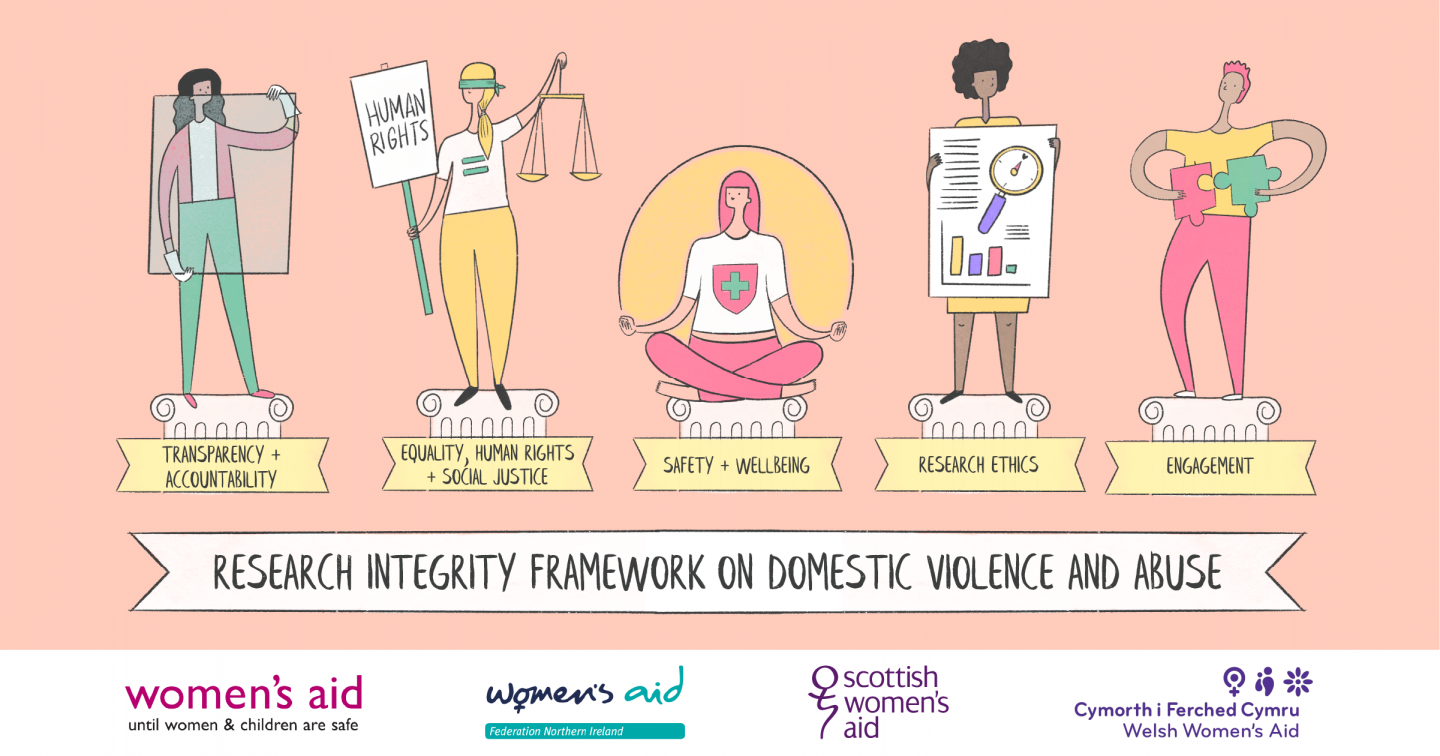On the 30th November 2020, the four Women’s Aid federations from Scotland, England, Wales, and Northern Ireland published a framework to show the quality of research on domestic abuse.
Developed with and endorsed by academic researchers, this framework provides decision-makers with clarity on the merits of different types of evidence and research, and the principles of integrity relating to research on domestic abuse.
Research Integrity Framework on Domestic Abuse
The framework brings together the knowledge and experience of both academic and NGO partners, drawing on feminist research practice since the 1970s. Going back 50 years, the four federations emerged from the women’s liberation movement and were largely survivor-led. Each federation has engaged, over recent decades, in context- specific research to transform policy, services, and the lives of women and children across the United Kingdom.
This framework recognises that those engaged in collaborative research and evaluation have a responsibility to nurture sound, ethical research and to discourage research practice that is unethical or misrepresents itself and/or victims-survivors’ experiences.
The framework sets out the critical importance of grounding research on domestic abuse within the wider field of violence against women and girls, taking an intersectional approach and ensuring that research focusing on minoritised groups should be carried out by researchers from organisations led by those groups. The four Women’s Aid federations want researchers, organisations, journals, national and local policymakers, and commissioners to sign up to the five pillars set out in this framework.
- Safety and wellbeing
- Transparency/accountability
- Equality, human rights, and social justice
- Engagement
- Research ethics
Sarah Mason, CEO Women’s Aid Federation Northern Ireland:
On behalf of the federations of the four nations, we are delighted to launch this framework together with our partner academics. Evidence is critical to our work. Drawing on our national databases, our expertise and the experiences of survivors we and our member services work with, we aim to ensure that policy and practice is based on the real needs of survivors and their children. It is vital that research on domestic abuse is carried out with integrity. This means ensuring diverse survivors – and the organisations that represent them – are meaningfully and safely engaged with. It means that research is grounded in appropriate context and its methodology, and any limitations, are clear and transparent.
This transparency is essential for policymakers, commissioners and practitioners to make informed judgements on decisions which impact the lives of survivors. Sadly, over the years we have seen how poor survivor engagement has left survivors re-traumatised, how patchy evidence has been misused to close essential services, and how the experiences of large groups of survivors have been erased by poorly-framed questions. We are pleased to have been able to work with some of the country’s leading academics and our partners to develop what will be a useful tool to drive best practice in this field.
